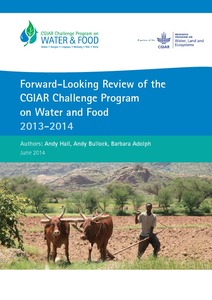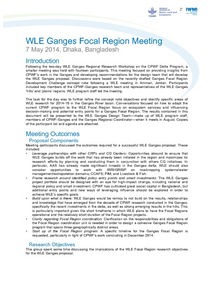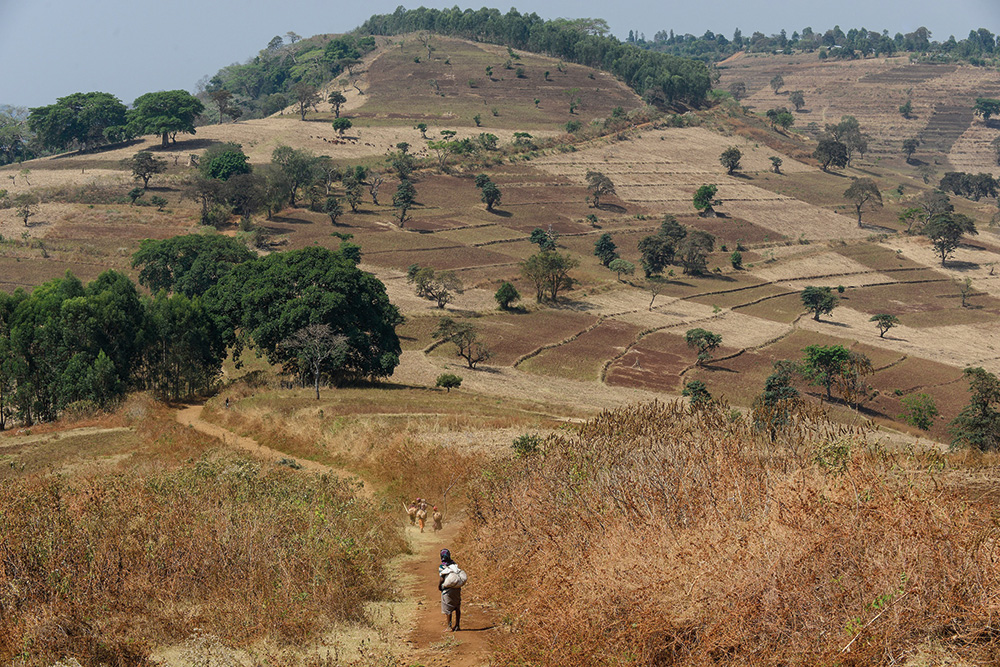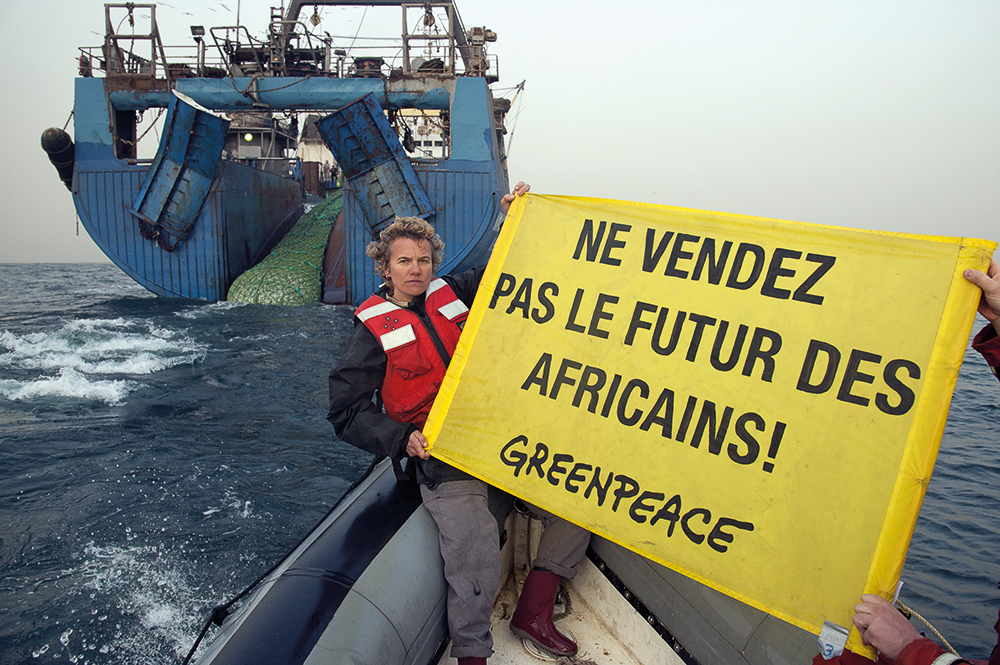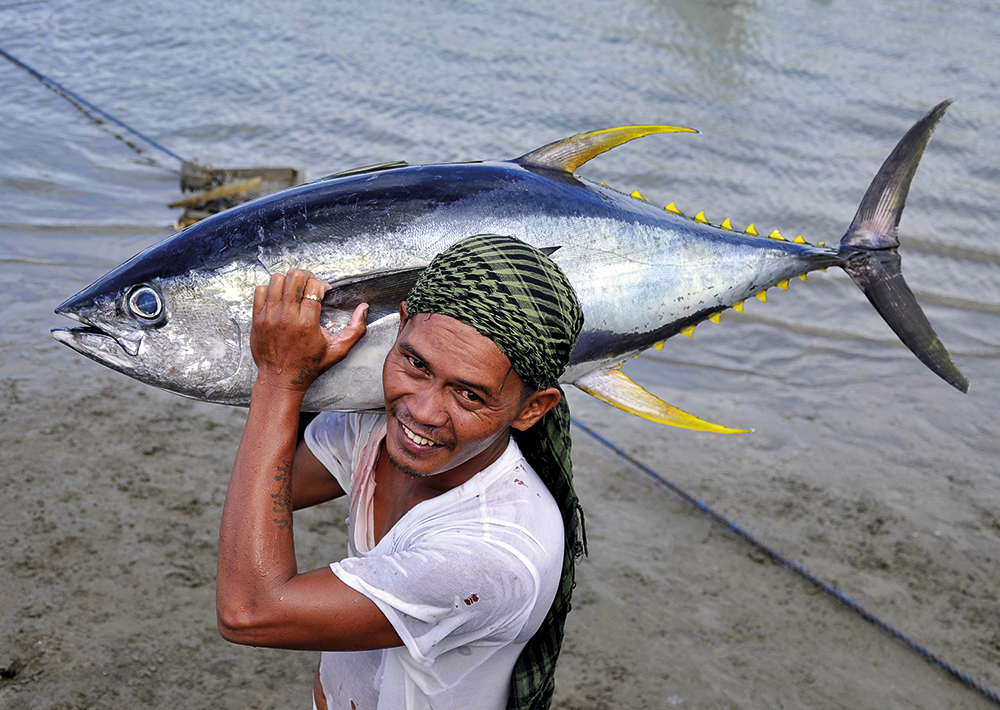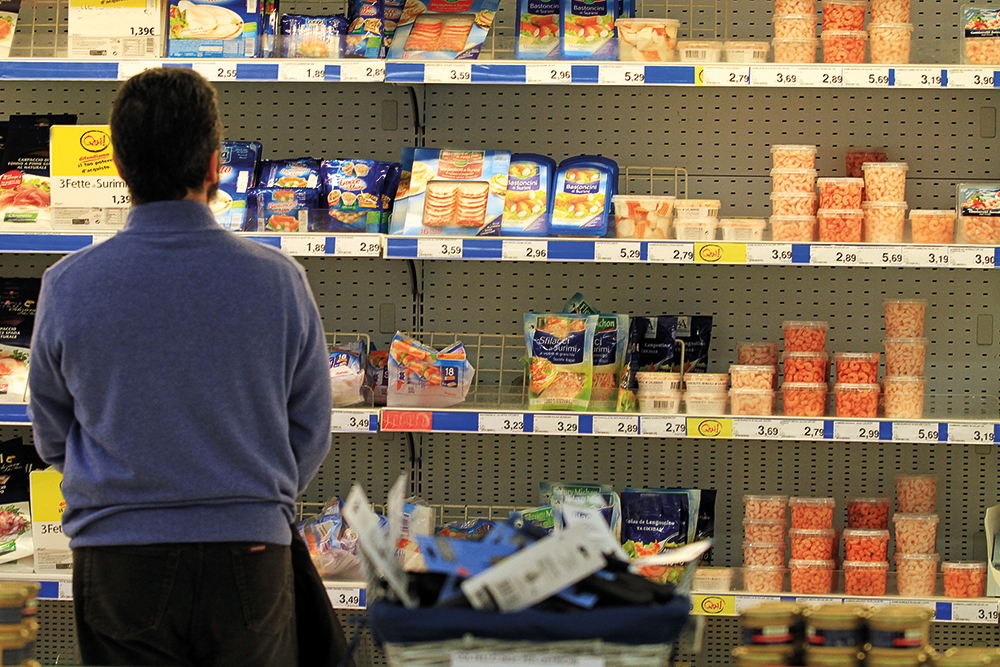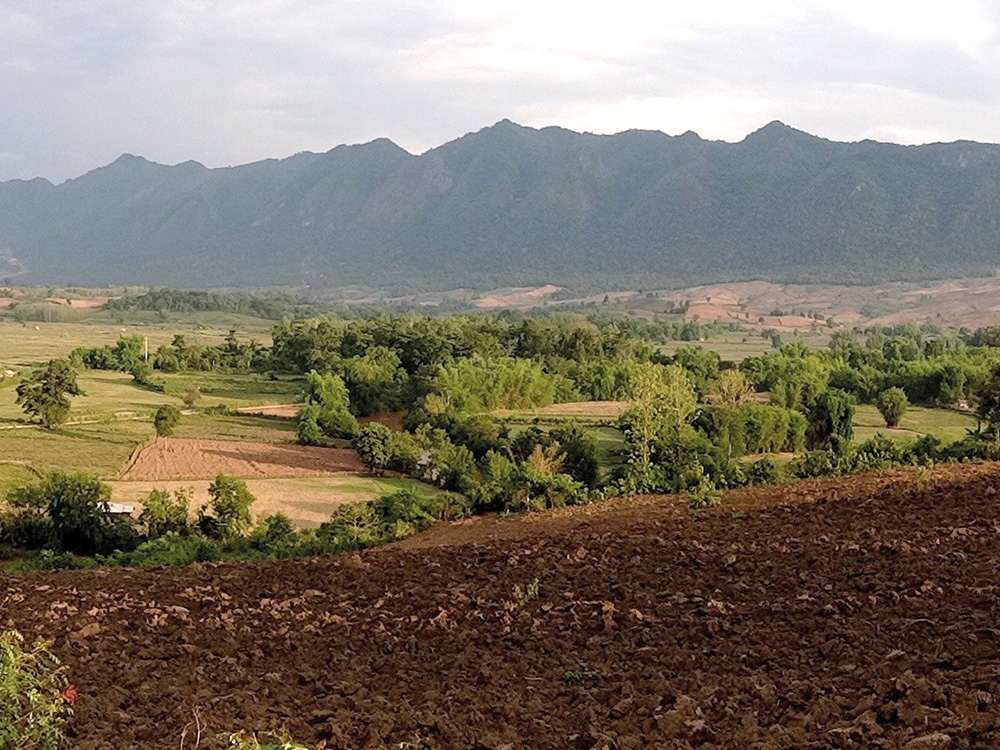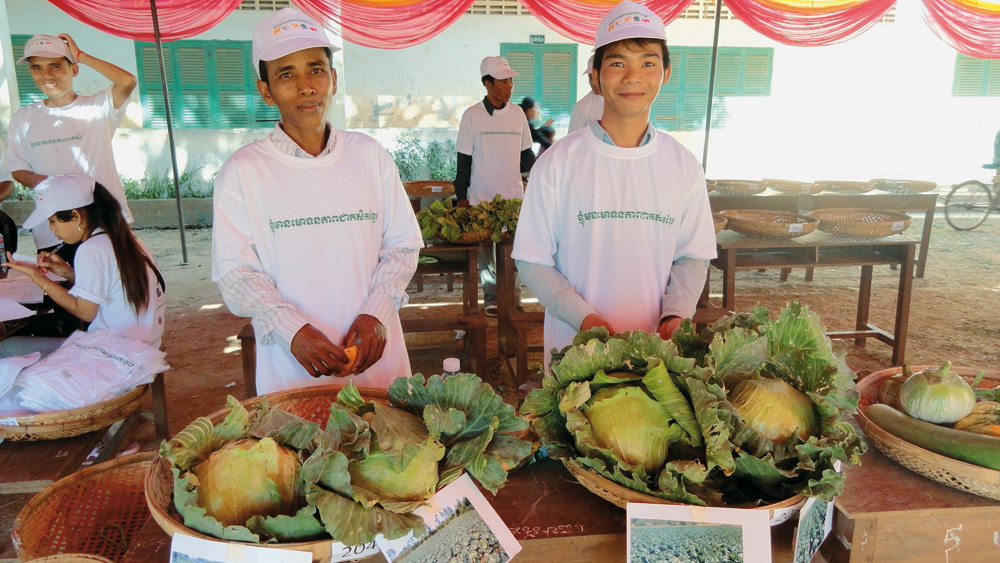Forward-Looking Review of the CGIAR Challenge Program on Water and Food (2013-2014)
The Challenge Program on Water and Food (CPWF) was a 10-year (January 1, 2004–December 31, 2013) investment by the CGIAR, conducted over two phases and aimed at an overarching goal of raising water productivity and improving food security while helping alleviate poverty, improve health, and attain environmental security. This review, undertaken between November 2013 and March 2014, was commissioned by CPWF to assess CPWF’s achievements, but also to identify lessons to take forward by CGIAR Research Programs (CRPs) and other research and development stakeholders.

